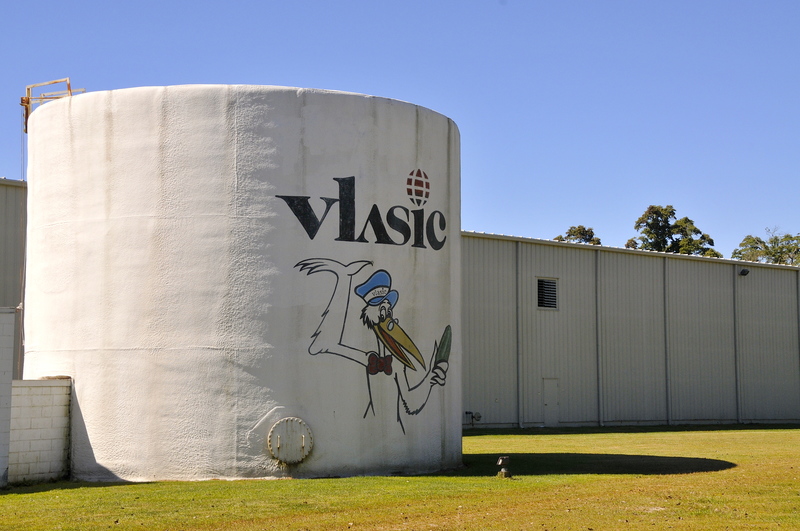It was supposed to be an information session about a plan to clean up the 107-acre Vlasic pickle plant site in Millsboro. Instead, a Nov. 21 meeting sponsored by the Community Involvement Advisory Council became another venue for frustrated residents to vent anger at state officials.
“Every meeting I've been to, we are told a different story. It's a done deal; Millsboro residents are expendable,” said Wharton's Bluff resident Pat Catalano. “It's the governor's show to bring Allen Harim here.”
Wharton's Bluff is one of several communities near the site where Allen Harim wants to open a poultry-processing plant that will offer 700 new jobs. The site has not been used since Pinnacle Foods halted pickle production two years ago.
Department of Natural Resources and Environmental Control staff from four departments reviewed contaminants found at the site and a remediation plan published Nov. 27.
State environmental officials said they will survey monitoring wells as well as monitor drinking water wells at the state designated brownfield site.
A survey found elevated levels of lead and the chemicals trichlorethylene (TCE) and perchloroethylene (PCE) that surpassed the Delaware drinking water standard. Nitrate levels in some wells also exceeded state standards. PCE is a chlorinated solvent used as a degreaser; TCE is used to remove grease from metal parts.
While officials said the pollution does not pose an immediate threat, they plan to monitor possible migration of the chemicals through the groundwater to determine if the chemicals pose a future threat. Groundwater flows northwest of the plant.
Morgan Price, of DNREC's site investigation and remediation section, said elevated levels of PCE and TCE were found in one groundwater monitoring well, while elevated levels of nitrates were found in several wells. Other detected chemicals – not exceeding state standards – included aluminum, chromium, arsenic, barium, cadmium, cobalt, iron and manganese.
Tests were conducted this past August and September by consultant BP Environmental during a brownfield investigation. Low levels of chemicals found in soil and sediment samples do not require remedial action, Price said. BP Environmental was hired by Allen Hirman.
When asked about off-site contamination, Tim Ratsep, a DNREC program administrator, said there is no indication of off-site pollution. “No testing was needed off site,” he said.
Dot LeCates, who lives across the road from the site in Possum Point, said area residents are conducting their own water tests. “We feel the surrounding communities are being neglected,” she said.
A remediation plan was published Nov. 27, and a public hearing is scheduled for 6 p.m. Tuesday, Dec. 17, at the Millsboro Town Hall.
The original date of the hearing was changed when residents questioned the time period. Maria Payan, representing Socially Responsible Agricultural Project, said because the plan was being published during a holiday period, there was not enough time for residents to respond to it. She asked officials to postpone the hearing until mid-December; they agreed.
Cindy Wilton, who also lives in Possum Point, called the meeting another “dog and pony show.”
“They were evading our concerns and questions about the contamination in this area. DNREC and the politicians are only out for themselves, and the residents that live here don't matter,” she said.
Wilton is one of the leaders of Protecting Our Indian River Citizens Group, a grassroots effort to protect the area watershed and its communities.
Brownfield and permit questions
Some residents disputed a plan to use tax dollars to assist cleanup of the brownfield site, but Ratsep disagreed. The state will reimburse up to $200,000 in investigation and clean-up costs, he said.
Of every dollar the state invests in cleaning up, $17.50 is returned to the local economy in taxes and jobs. “It's a good return on the investment,” Ratsep said.
Ratsep said while Pinnacle/Vlasic will remain responsible for contamination, Allen Hiram will do the clean up. He said under the brownfield program, Allen Hiram does not have to hold title to the land. “They did not cause contamination at the site,” Ratsep said.
Under the program, the state reimburses the first $125,000 dollar for dollar and the next $75,000 at 50 cents for a dollar.
Ratsep also said the brownfield reimbursement program is an incentive to help redevelop abandoned industrial sites and not force development to move to a new greenfield location.
Ratsep tried to clear up DNREC's role in the matter. “DNREC has no vested interest in this. We only want to ensure the property and redevelopment is safe for the public health and the environment. DNREC does not have land-use control,” Ratsep said.
He urged residents to pose questions about land use to Sussex County officials.
Residents also questioned Pinnacle's probable request for renewal of its pollution discharge system permit. “Pinnacle is not operating there,” Payan said. “It will be an entirely different company that will need a different permit,” she said. She said if the permit process is allowed to go forward, her group will file a lawsuit to stop it.
Kathleen Stiller, director of DNREC's Division of Water, said Pinnacle has a legal right to apply for a discharge permit. If a permit application is received prior to expiration of the current permit, Stiller said, the existing permit is administratively extended until DNREC completes a review of the permit request.





















































